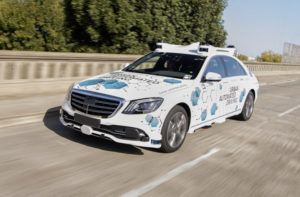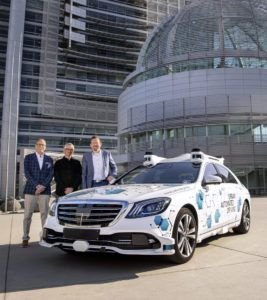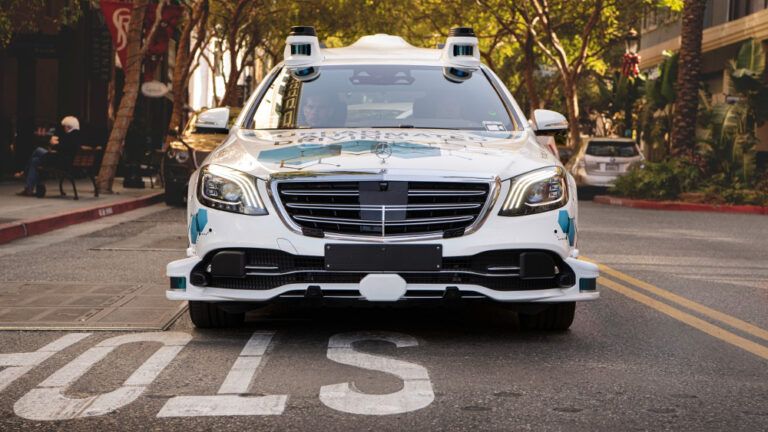Mercedes-Benz (MB) and Bosch’s joint project to develop urban automated driving has entered a new stage with the launch of a pilot app-based ride-hailing service using automated Mercedes S-Class vehicles in the city of San José in California.
Initially available to a select group of users and monitored by a safety driver, the self-driving cars will shuttle between West San José and downtown, along the San Carlos Street and Stevens Creek Boulevard thoroughfares. The service will. They will use an app developed by Daimler Mobility AG to book a journey by the automated S-Class vehicles from a defined pick-up point to their destination. MB and Bosch hope this trial will provide valuable insights into the further development of their SAE Level 4/5 automated driving system. The partners also expect to gain further insights into how self-driving cars can be integrated into an intermodal mobility system that also includes public transportation and car-sharing.
In mid-2017, San José was the first city in the USA to invite private companies to carry out field tests of automated driving and analyse the growing challenges in road traffic. Especially in congested city traffic, self-driving cars’ permanent 360-degree surround sensing can potentially enhance safety, and their smooth driving style can improve traffic flow. From August through November this year, representatives of the project joined staff from the City of San José to discuss the pilot with several community organizations, looking at its goals, the vehicles’ technology, the layers of safety redundancy built into the scheme, and suggestions for future use cases.
 MB and Bosch have been working together on solutions for automated driving in cities, including the software for vehicle management, for the last two and a half years. Engineers from both companies work desk-to-desk on the project, with one part of the team based in Sunnyvale, California, and the other in the Stuttgart area of Germany. MB’s role is to make the jointly-developed driving system ready for installation in the vehicle, and to provide the necessary test bays, and trial fleets. For its part, Bosch develops and manufactures the components for urban automated driving that the alliance has identified, such as sensors, control units, and steering and brake control systems.
MB and Bosch have been working together on solutions for automated driving in cities, including the software for vehicle management, for the last two and a half years. Engineers from both companies work desk-to-desk on the project, with one part of the team based in Sunnyvale, California, and the other in the Stuttgart area of Germany. MB’s role is to make the jointly-developed driving system ready for installation in the vehicle, and to provide the necessary test bays, and trial fleets. For its part, Bosch develops and manufactures the components for urban automated driving that the alliance has identified, such as sensors, control units, and steering and brake control systems.
Bosch and MB have taken a further partner on board specifically for the automated ride-hailing service pilot project. Daimler Mobility AG is developing and testing a fleet platform to accompany the pilot’s operation phase, which allows potential ride-hailing partners to seamlessly integrate self-driving Mercedes vehicles into their service portfolio. The platform manages both self-driving and conventional vehicles, including operation and maintenance. An app-based mobility service for conventionally driven Mercedes vehicles went into operation in the San Francisco Bay Area in the autumn, with an identical service also available in the German capital of Berlin.
“We want to know more about how automated vehicles can help improve safety and reduce congestion, as well as make mobility more available, sustainable, and inclusive,” said Dolan Beckel, San José’s director of civic innovation and digital strategy. “The Mercedes and Bosch project ties in with our extensive ‘smart city’ objectives. It will also help us develop guidelines for dealing with new technologies and prepare for the traffic system of the future.”





